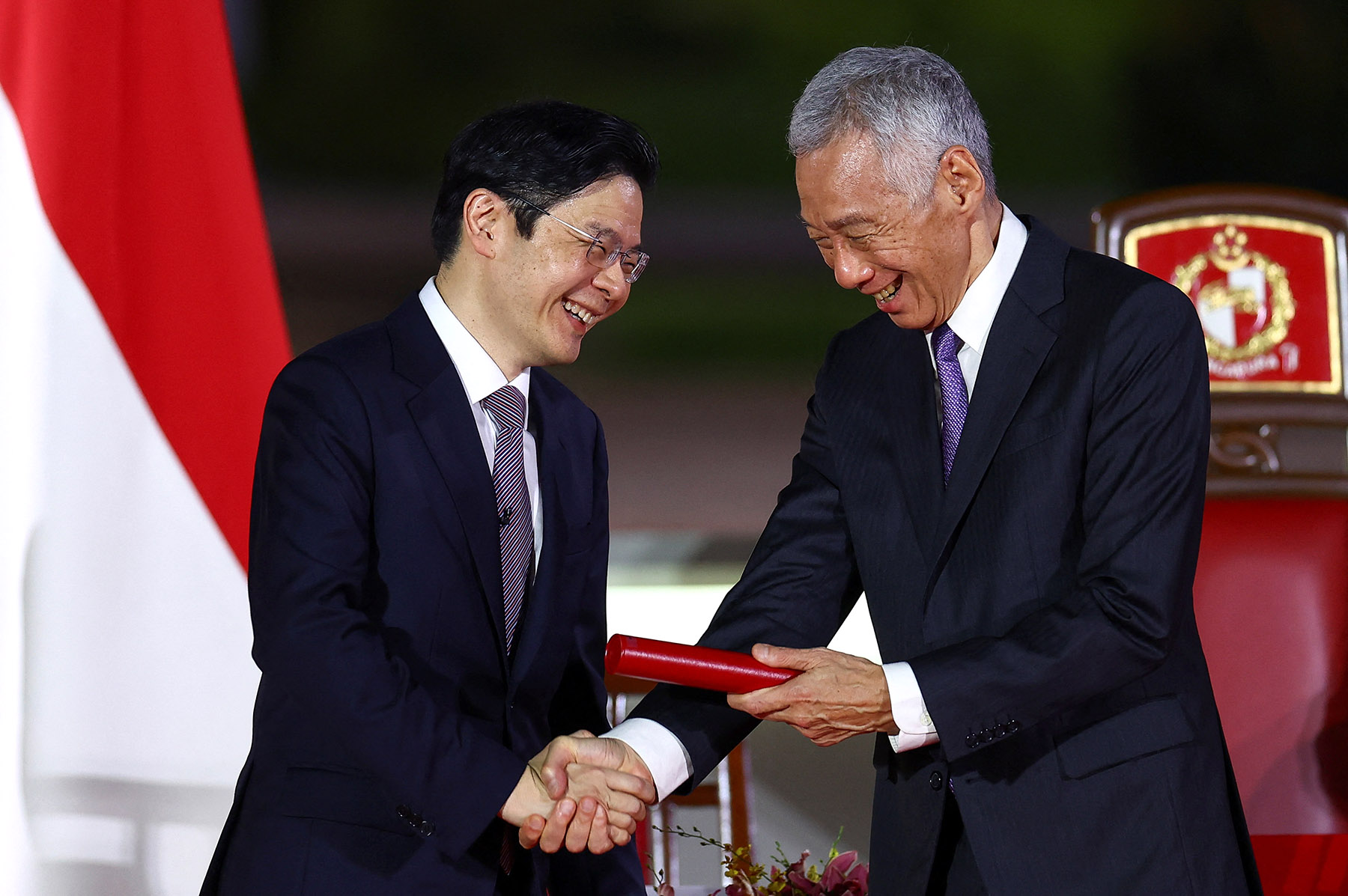New Singapore PM set to continue ‘hedge diplomacy’ amid growing global tensions, analysts say

Singapore’s newly installed Prime Minister Lawrence Wong is set to maintain the city-state’s policy of “hedge diplomacy” and neutrality despite rising tensions between China and the United States, analysts said.
Wong was sworn in as the country’s fourth prime minister at the Istana, Singapore’s presidential palace, on May 15. A member of the fourth generation, or 4G, of the ruling People’s Action Party (PAP) leadership, Wong is expected to continue the party’s established policies.
In the inauguration speech, Wong expressed gratitude to Lee Hsien Loong, who served as the prime minister for the past two decades and remains in the new cabinet as a senior minister.
“We value the centrality of ASEAN (the Association of Southeast Asian Nations) and its efforts to foster regional cooperation and integration. We hope for stable US-China relations and will continue engaging both powers,” Wong noted.
“We enjoyed unprecedented peace and stability in the Asia-Pacific since the end of the Cold War. Unfortunately, the era is over,” Wong stressed while expounding on his external views.
He also vowed to improve trust within local society, and push the country forward with a common purpose and shared resolve.
Wong, 51, is the first prime minister of Singapore born after the country’s independence in 1965. He said that the handover also signifies a passing of the baton across generations.
James Chin, a professor of Asian Studies at the University of Tasmania in Australia, said that Wong’s ascent to the country’s top post happened at a “time of great crisis in the international arena”.
He said Wong has to respond to the external challenges that Singapore is now facing, including conflicts in Europe and the Middle East, heated disputes over the South China Sea, and tension between China and the US.
But Chin said that with Wong at the helm, Singapore will continue to “see itself as the interlocutor between China and the US”.
Singapore is neither pro-China nor pro-US, Wong said in a May 6 interview with The Economist magazine.
“We are pro-Singapore,” he said. Wong said the global order is shifting and that the US’ “unipolar moment has ended yet it remains a pre-eminent power in a world that is transiting to a multipolar world”.
Mustafa Izzuddin, a senior international affairs analyst at Solaris Strategies Singapore, said he expects Wong to continue Singapore’s current diplomatic position.
When it comes to the US and China, this means “not choosing sides in superpower rivalry while practicing hedge diplomacy” to ensure “maximum economic benefits” for Singapore, he said.
Mustafa added that Wong is “a neoclassical realist” and sees both the US and China as “important strategic partners”.
Oh Ei Sun, a senior fellow at the Singapore Institute of International Affairs, said Singapore’s stance is representative of most ASEAN member states — neutral and adherent to ASEAN centrality.
On April 15, then-Prime Minister Lee announced that he would relinquish his office on May 15 to Wong, his deputy prime minister and finance minister. Wong will continue to serve as finance minister.
Wong has appointed Minister for Trade and Industry Gan Kim Yong as his deputy prime minister.
Wong said in his inauguration speech that one of his priorities is to identify and bring younger talents in their 30s and 40s to the team and his leadership style will differ from previous generations.
Analysts said while economic issues like the rising cost of living will remain a top concern for Singaporeans, Wong also needs to address the changing aspirations of the new generation of citizens.
Facing growing conflict, rivalry, protectionism, and nationalism, Wong said Singapore will adapt to the changes and continue to be friends with all.
Singapore’s economic success has made it one of the world’s most prosperous societies but younger Singaporeans want more in life than material success. This is set to be a key factor in a general election that will be held in 2025.
Mustafa of Solaris said Wong can respond to shifting domestic concerns by adopting an “engaging and consultative style more attuned with a newer generation of voters”.
“Given the unpredictability of ground sentiments, the relatability of Wong to different segments of the population will be his greatest asset to ensuring that he garners a strong and healthy mandate from the people of Singapore in the next general election,” he said.
Xinhua contributed to this report.


